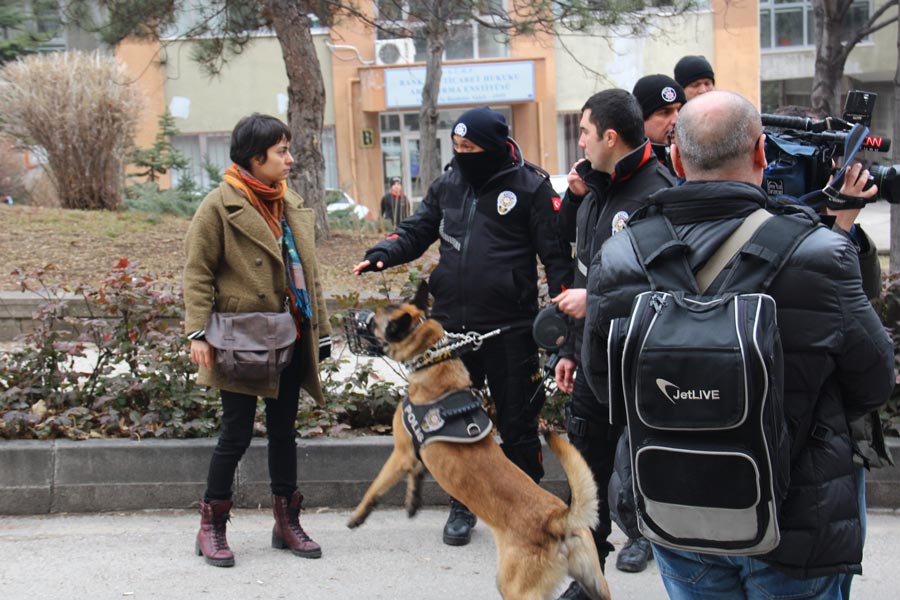A report by Amnesty International reveals how the Turkish authorities systematically throttle civil society in Turkey through using broad measures of the emergency rule, bypassing legal safeguards and norms that regulate affairs of non-governmental organizations.
Amnesty whose own members have been caught in the post-coup crackdown and 10 of its staff workers stand trial over charges of terrorism and coup involvement offered a sober analysis about the suffocating world of Turkey’s once vibrant civil society.
“A calling climate of fear is sweeping across Turkish society as the Turkish government continues to use the state of emergency to shrink the space for dissenting or alternative views,” the report said. State of emergency, as many other reports highlighted, lies at the heart of its central argument about narrowing space for critical voices against the government.
Ankara extended the emergency rule for the seventh time last week, shrugging off national and international calls for ending it. According to the rights group, the state of emergency, bolstered by over 30 executive decrees that bypassed parliamentary and judicial scrutiny, provides the context and legal opportunity for a worsening an unprecedented wave of detentions and prosecutions, and the erosion of fair trial rights in Turkey.
More than 107,000 public servants have been dismissed from civil service. To the dismay of the victims of government purge, authorities have reinstated only 100 sacked workers back to their posts. Constitutional Court, smothered by more than 100,000 applications, proved to be insufficient to timely manage reviewing complaints of people. While the top court is slogging through reams of files, expectations for an effective legal remedy in domestic realm grow thin.
The report noted that more than 100,000 people have faced criminal investigation and potential prosecution. At least 50,000 have been jailed pending trial.
“Whilst the jailing of journalists and activists may have hit the headlines, the profound impact that Turkey’s crackdown has had on wider society is harder to quantify but it is no less real,” Amnesty International’s Europe Director Gauri van Gulik said in a statement on Thursday.
“Under the cloak of the state of emergency, Turkish authorities have deliberately and methodically set about dismantling civil society, locking up human rights defenders, shutting down organizations and creating a suffocating climate of fear.”
Civil society and media have found themselves at the center of the crackdown. According to the report, more than 180 media outlets and over 1,300 associations and non-governmental organizations have been shut down in the aftermath of the 2016 coup. Since the attempted putsch, at least 120 journalists have either been detained or jailed for a period of time. Majority of them still remain in prison.
The rights group, which periodically came up with reports about Turkey’s gross human rights violations and devastating social and economic consequences of the purge for the dismissed workers, this projected its focus on civil society and its leading actors.
Amnesty International’s Turkey chair Taner Kilic still remains in jail despite the worldwide campaign from the London-based group. Kilic was imprisoned on charges of abetting terrorism and membership in Gulen Movement blamed by the Turkish government for orchestrating the failed coup. Both U.S.-based cleric Fethullah Gulen and his sympathizers reject any link to the botched coup.
And Amnesty strongly refuses charges against Kilic as absurd and groundless.
“Extraordinary measures are becoming increasingly normalized in Turkey, and yet in spite of the pernicious, deliberate and targeted onslaught against individuals and groups, there are still brave people in Turkey willing to stand up and speak out,” Gauri van Gulik added in his statement upon the release of the report.
“The international community should stand with them and call on the Turkish authorities to lift restrictions on civil society organizations, end the crackdown on freedoms and lift climate of fear and intimidation.”




Comments are closed.